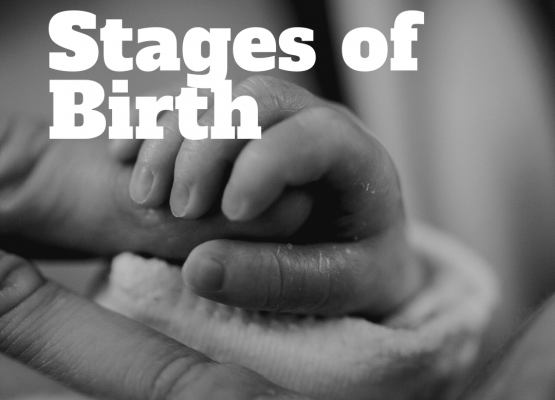As a mom, you may have noticed that while everything was going well with breastfeeding, you suddenly had to stop nursing your baby after doctor’s instructions, as your baby is not growing as he must be.
Doctors results: Your baby doesn’t take much weight because you probably don’t have milk. This stress occurs because you have noticed that after the fourth month your baby suddenly gain weight very slowly or worse he loses weight. Don’t worry, this process is normal. Ideally, we would like the baby to receive 30 g per day, wherein the month is reflected in approximately 1000 g. But your baby, based on baby weight charts, sometimes doesn’t reach that goal.
“Infant growth should be monitored with the World Health Organization (WHO) Growth Curve Standards to avoid mislabeling infants as underweight or failing to thrive.” says the American Academy of Pediatrics.
During the 4th month, the average weight gain of a baby is about 18 grams and this weight is reduced even more to 12 g per day in the 9th month of life, although it has begun to receive food.
Do not panic. If your child’s general condition seems normal, he sleeps well, his diapers are normal and many in quantity, he remains active, he has good skin color and muscle tone then you do not need to worry.
About his diapers we expect him to not have dark and smelly urine or diapers with crystals but he has 6-8 very wet cloth nappies, in 24 hours as we also expect him to have energy during the day to remain active and not be sleepy. World Health Organization states that the above changes are normal for exclusively breastfed babies and in case your doctor specifically from the 4th month suggests you stop breastfeeding, give formula or start solid food, first make sure that he uses the developmental scales of W. H. O for exclusively breastfeeding babies.
Breastfed babies tend to gain weight very quickly up to the 3rd month of life, while from the 3rd to the 12th month this rapid weight gain gradually decreases. Regarding the possible weight reduction, there are specific guidelines from the first days of birth.
- The baby loses 5- 10% of his birth body weight in the first week of life and regains this weight after 14 days.
- The birth weight normally is doubled by 4 months and tripled by 13 months in boys and 15 months in girls.
- The birth length increases 1,5 times in 12 months.
- The birth head circumference increases by about 11cm in 12 months.
However, babies grow differently.
What causes a baby to gain weight slowly?
Perhaps for this question, it is important to look for the causes in some medical condition, either on the baby’s side or on the mother’s side, especially if your baby during the day does not appear to have issues with sleep or eat as he breastfeed very well and you have more than enough milk.
In the case of a baby’s medical issue, you need to seek about possible allergies, infection, of gastric problems.
- Allergies to food that the mother used to eat. It is common for babies to become allergic to cow’s protein and it is recommended, after it has been confirmed that the baby is indeed allergic, that the mother stops consuming dairy products.
- Metabolic disorders like hypoglycemia, galactosemia, or phenylketonuria can interfere with the body’s ability to convert food into energy.
- Infection ( simple cold, urinary infection, etc)
- Cystic fibrosis can prevent a child from absorbing calories
- Vomiting means that the baby does not retain enough milk to grow. (Gastroesophageal reflux can cause your child to vomit frequently.)
In the case of a mother’s issue, you need to seek the problem in changes that are created in your daily life.
- A stressed or unwell mother that causes a decrease in supply.
- An emotional shock can, occasionally, decrease the milk supply.
- Contraception pills or new pregnancy affects the milk supply. (New pregnancy as also pills keep the prolactin in very low levels)
- The baby sleeps more so he loses meals.
- Your baby is ill or refuses to nurse him.
- You are bottle feeding more than occasionally. (Breastfeeding less than 6- 8 times a day can easily decrease your milk supply)
- Some drugs may decrease your milk supply. It is possible antihistamines do, especially the older ones such as Benadryl; pseudoephedrine (Sudafed) can also decrease the milk supply. Note that these two drugs (or similar ones) are found in cold and allergy medicines.
‘Wait-and-see’ approach can be justified if your baby seems happy and the other indicators of growth and health are fine.
So until doctors are familiar with that information and W. H. O baby weight charts we need to keep ourselves informed. Be patient!
WHO Multicentre Growth Reference Study Group. (2006). WHO Child Growth Standards based on length/height, weight, and age. Acta Paediatrica (Oslo, Norway: 1992). Supplement, 450, 76-85Hirth, R., Weitkamp, T., Dwivedi, A. (2012). Maternal intravenous fluids and infant weight. Clinical Lactation 3: 59–93
Noel-Weiss, J., Courant, G., Woodend, A.K. (2008). Physiological weight loss in the breastfed neonate: a systematic review. Open Med 2(4), e99–e110.




